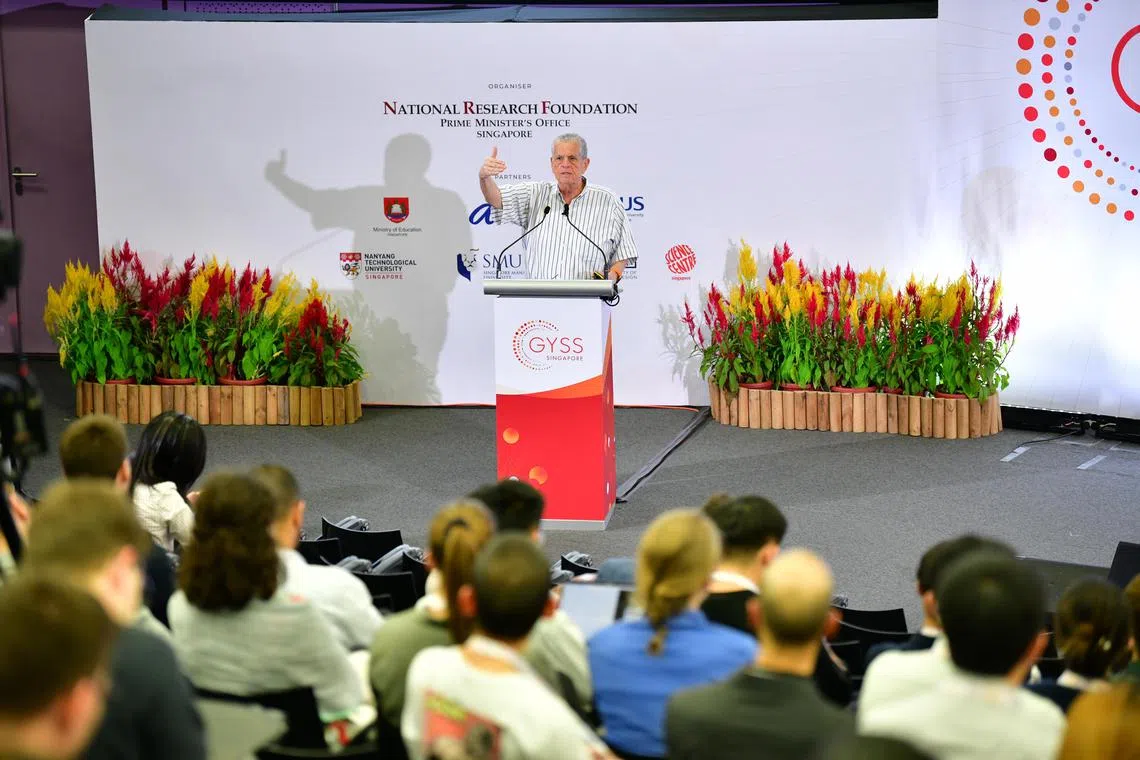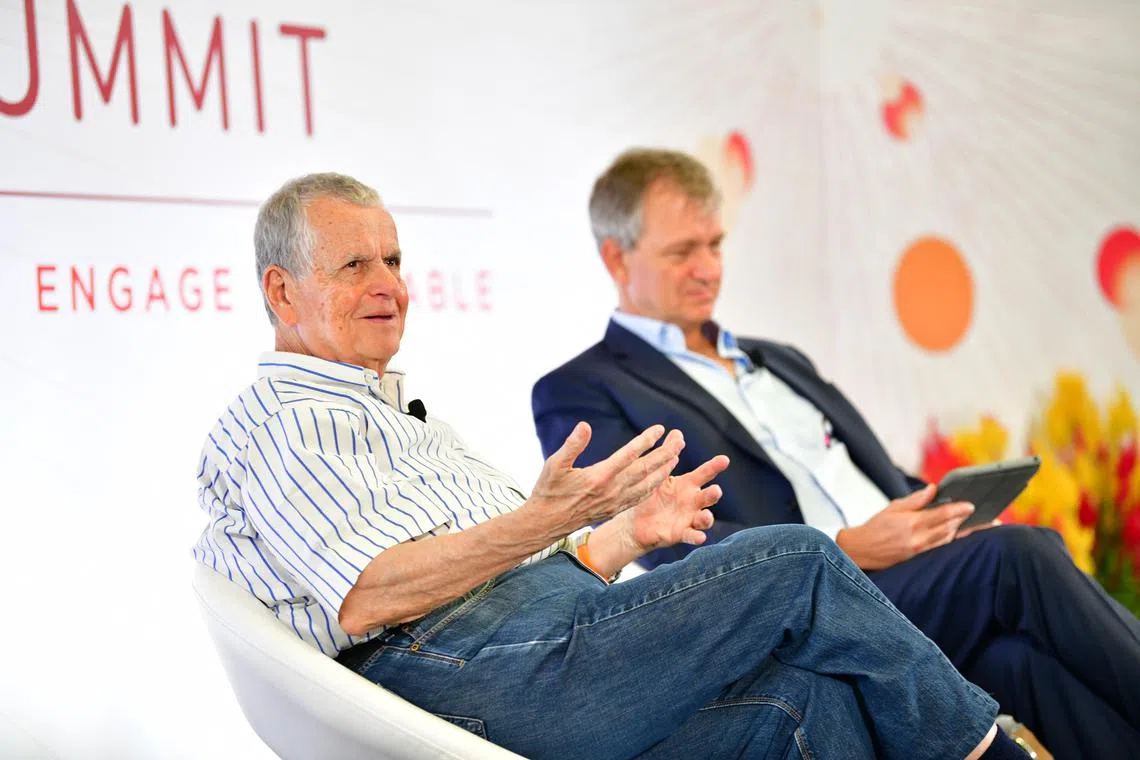Nobel laureate urges scientists to leverage on people’s trust in them to tackle misinformation
Sign up now: Get ST's newsletters delivered to your inbox

Professor Aaron Ciechanover highlighted how misinformation has contributed to the low vaccine uptake rates among certain groups.
PHOTO: NRF SINGAPORE
SINGAPORE - Spike proteins, mRNA, T-cells – these are some of the scientific terms that have been frequently brought up during the Covid-19 pandemic.
While scientists may think that such jargon constitutes basic knowledge, Professor Aaron Ciechanover said they still “need to be able to know how to explain it in lay language”, including to “children and parents who have no clue” what the terms mean, to improve people’s knowledge about vaccines in response to global vaccine hesitancy and resistance.
Prof Ciechanover is an Israeli biochemist who won the Nobel Prize in chemistry in 2004 and is a member of the Technion-Israel Institute of Technology’s Faculty of Medicine.
He was speaking at this year’s Global Young Scientists Summit about bioethical issues raised by the pandemic. The summit was held at the Singapore University of Technology and Design from last Tuesday to last Friday.
Prof Ciechanover highlighted how misinformation, some of it spread by politicians and celebrities, low vaccine uptake
To address the “infodemic”, scientists need to leverage their positions as accepted sources of reliable information and collaborate with the media to make their voices amplified, he said in an interview with The Straits Times.
When scientific findings have uncertainties, such as how Covid-19 vaccines have a very small chance of causing serious side effects, scientists should always “tell the truth, because science is about the truth”, he said.
However, they should explain to the public that the benefits of taking the vaccine still far outweigh any risks involved, he added.
In Singapore, there have been instances of people circulating fake news online about Covid-19 vaccines. For example, in 2021, Singaporean Cheah Kit Sun published a blog post
The post, which falsely exaggerated the dangers of the vaccines, was issued correction directions under the Protection from Online Falsehoods and Manipulation Act (Pofma). Consequently, it had to carry correction notices specified by the Pofma Office.
On Singapore’s fake-news law, Prof Ciechanover said it was “the right thing to do”, and he hoped for more countries to adopt stricter legislation to address misinformation. “There is freedom of speech in democracies, but freedom of speech stops when you cause damage to the public,” he said.
He also strongly condemned doctors who disseminate misinformation. Citing the example of former doctor Andrew Wakefield, who had published a now widely discredited article linking the MMR (measles, mumps and rubella) vaccine to autism, Prof Ciechanover said that when preventable deaths occurred because of falsehoods circulated by physicians and scientists, it was “equal to murder”.

Professor Aaron Ciechanover (left) during a Global Young Scientists Summit panel discussion moderated by Professor Peter Preiser, associate vice-president for biomedical and life sciences at Nanyang Technological University.
PHOTO: NRF SINGAPORE
“You know, in medicine, because of your swearing that you are going to give people the best treatment that is based on the best science, and that everything is reliable, people trust in you,” he said.
“And basically when you betray that trust, that is punishable and you should not be able to work in a job any more.
“You are not abiding by the basic rules of science and medicine. You don’t belong to the profession.”
When asked about his dedication to bioethics, Prof Ciechanover replied: “Maybe it is a matter of age. You grow older, you look at the world differently, you learn that the world is very cynical, and that there is no mercy.”
Urging more compassion for those suffering in other countries, he said: “There are people who are behind... We should not forget it. They have red blood, like we have, and they have twice the heart. So why not be a little bit more merciful?”


